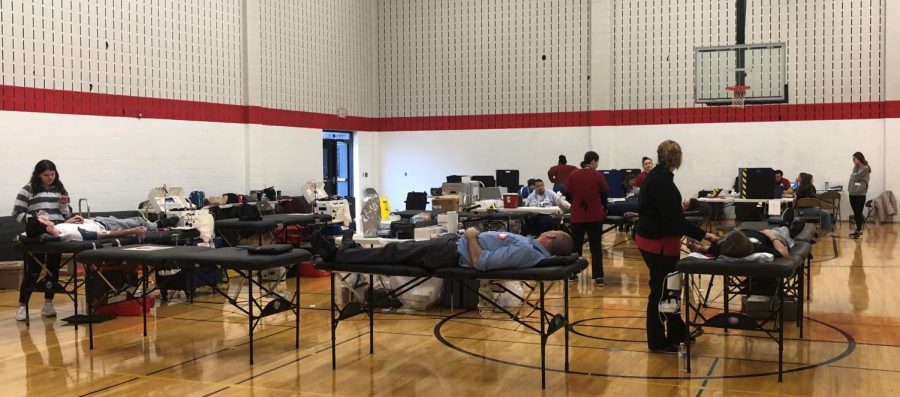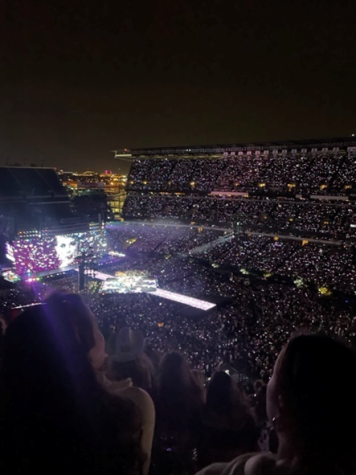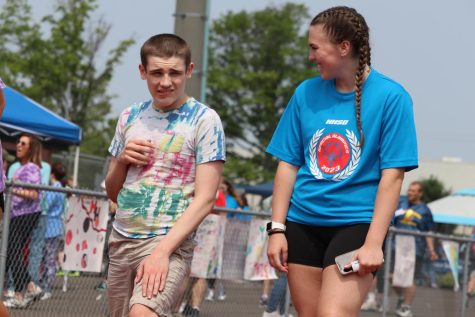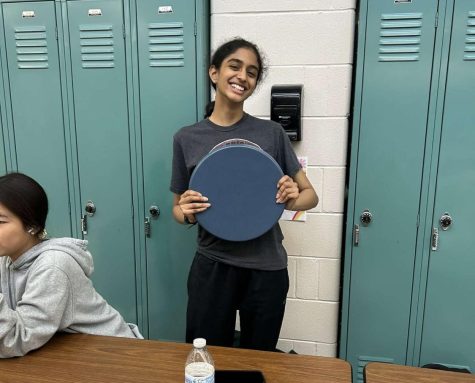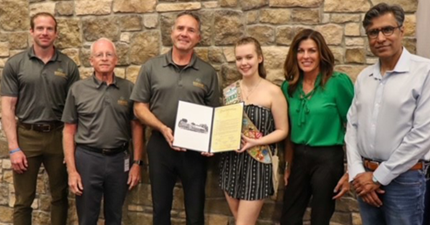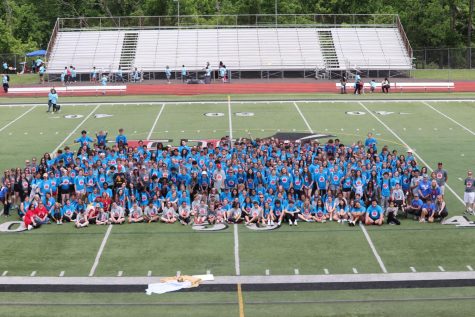Donating is the Bloody Right Cause
Nothing screams out Valentine’s Day quite like a blood drive! This year on Feb. 13, the Future Medical Leaders of America helped to take over to help run the annual blood drive. FMLA is a club focusing on allowing students to explore career options in the medical field, as well as get involved in community service, like fundraisers for pancreatic cancer patients.
Plans to run the blood drive started during the end of the last school year. With FMLA running the blood drive, Student Council will be able to focus on other activities. Science teacher and FMLA advisor Mr. Baker said, “Student Council used to take care of the blood drive and oversee it, but they have their hands [full]. They have so many different activities that they run, that they felt as though they couldn’t devote enough appropriate time to the blood drive. They asked if [FMLA] could take over.”
Participating in the blood drive can save people’s lives. FMLA co-president Nicole Huertgen said, “One pint of our blood saves three people’s lives and it really helps people who have cancer, gunshot victims, trauma, and even really young infants.”
Most of the blood donated goes towards cancer patients. Mr. Baker said, “There is a big need for blood with cancer patients. One of the treatments for cancer patients destroys the cells that produce your blood cells, so bone marrow. These patients need lots of blood or the components of blood, [like] red blood cells, plasma, platelets, and they each have different roles.Sometimes they just might need red blood cells or just platelets.”
As well as aiding those who are in need, the blood will be going to local areas, which are in severe need of blood. Jenny Postevka co-president said, “The northeast is going through a blood drought, meaning that a lot of hospitals don’t have enough, so they have to get it shipped from the west coast and from other hospitals. A lot of people don’t get blood in time, a lot of lives are lost.”
Because of this need for blood, there is a minimum that FMLA needs to get a sustainable amount of blood. Huertgen said, “They need 120 pints of blood a day,” and Postevka said, “Not everyone that signs up will be able to donate blood. It’s important that we have more people sign up.”
Blood drives among high schoolers and college students give the most blood to hospitals, out of all other events. Postevka said, “About 30% of the blood in hospitals come from high schoolers donating.” Hospitals need the blood that is being donated, but it seems there are a lack of people able/willing to donate, even when there is a large opportunity. Huertgen said, “We have big events where everybody comes to donate blood. We’re slowly fading out because people don’t want to do it anymore, people are getting more phobias.”
Aside from being medically important to patients, it affects more than the patients. Postevka said, “Donating blood seems like such a small thing that you could do to make a really big impact on not just someone else’s life, but their family’s lives and your community.”
Donating blood requires little risk and allows for a great reward. Mr. Baker said, “You never know if you’re going to need blood yourself. Whenever you have an operation, they need to have blood ready in case you need to get a blood transfusion. It’s the right thing to do. It’s something that your body will renew, make more of, and there is very little risk of any issues by donating blood.”
Checking the ability to donate can never hurt. Mr. Baker said, “If you’re not sure if you’re able to donate, it really doesn’t make a difference. Sign up for an appointment, for our blood drive or any other local blood drive. You’ll never know if you’re able to donate if you don’t make an appointment and try to donate.”

